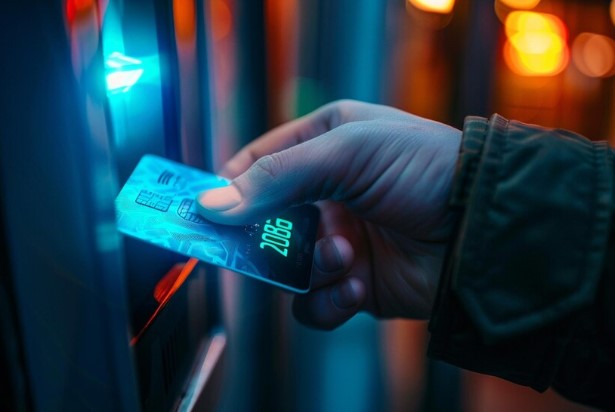From Virtual Goods to Real Value: How Digital Wallets Enhance Gaming Economies

The gaming industry has undergone a dramatic transformation in recent years, with virtual economies becoming increasingly sophisticated. Central to this evolution are digital wallets, which are revolutionizing how players manage and monetize their virtual assets. Among these advancements, the rise of the MPC wallet (Multi-Party Computation wallet) is playing a crucial role in enhancing the value of virtual goods and integrating them into broader economic systems. This article explores how digital wallets, particularly MPC wallets, are bridging the gap between virtual and real value in gaming economies.
The Rise of Virtual Economies in Gaming
Virtual economies have become a significant aspect of modern gaming, with players engaging in transactions involving virtual goods, currencies, and services. These economies have evolved from simple in-game transactions to complex financial systems where virtual assets can be traded, sold, and even converted into real-world value.
Digital wallets are at the forefront of this evolution, providing a secure and efficient means for managing virtual assets. They enable players to store, transfer, and trade virtual items with ease, making the entire process of interacting with virtual economies more seamless. For developers, digital wallets offer new opportunities to monetize their games through microtransactions, in-game purchases, and virtual marketplaces.
The Role of Digital Wallets in Gaming Economies
Digital wallets offer several advantages that enhance gaming economies:
- Streamlined Transactions: Digital wallets simplify the process of buying and selling virtual goods. Players can store payment information securely and complete transactions quickly, leading to a smoother and more enjoyable gaming experience.
- Enhanced Security: With advanced encryption and authentication features, digital wallets provide a secure environment for managing virtual assets. This reduces the risk of fraud and theft, ensuring that players’ investments in virtual goods are protected.
- Integration Across Platforms: Digital wallets facilitate the integration of virtual assets across different gaming platforms. This interoperability allows players to use their assets in multiple games or transfer them between platforms, adding value to their virtual investments.
Read also: The Role of Numeric Codes in Modern Technology : 3401297561, 3.94E+11, 3427734673, and 3760299912
The Impact of MPC Wallets
One of the most exciting developments in digital wallet technology is the introduction of MPC wallets. Multi-Party Computation (MPC) wallets use advanced cryptographic techniques to enhance the security and privacy of digital transactions. Unlike traditional wallets, which rely on a single key to access assets, MPC wallets distribute control across multiple parties, significantly reducing the risk of theft or loss.
Key Benefits of MPC Wallets in Gaming Economies:
- Improved Security: MPC wallets provide enhanced security by splitting private keys among multiple parties. This means that no single party has complete control over the wallet, making it much more difficult for malicious actors to gain access. In the context of gaming, this added security ensures that players’ virtual assets are well-protected against potential threats.
- Increased Privacy: MPC wallets offer greater privacy by enabling transactions without revealing sensitive information. This is particularly important in gaming environments where players may want to keep their virtual assets and transaction history confidential.
- Enhanced Trust: By using MPC wallets, gaming platforms can build greater trust with their players. The robust security and privacy features of MPC wallets reassure players that their virtual assets are safe and secure, encouraging more frequent and higher-value transactions.
Bridging Virtual and Real Value
The integration of digital wallets, particularly MPC wallets, into gaming economies is helping bridge the gap between virtual and real value. As players accumulate valuable virtual assets, they increasingly seek ways to convert these assets into tangible benefits. Digital wallets make this possible by providing secure and efficient methods for trading, selling, or converting virtual goods.
For example, players can use digital wallets to trade rare in-game items on virtual marketplaces or convert in-game currency into real-world money. The added security of MPC wallets ensures that these transactions are safe and reliable, fostering a more robust and trustworthy virtual economy.
Read also: The Role of Numeric Codes in Modern Technology : 3401297561, 3.94E+11, 3427734673, and 3760299912
Future Prospects
As digital wallet technology continues to advance, its impact on gaming economies will likely grow. MPC wallets represent just one example of how innovation is enhancing the security and efficiency of virtual transactions. The continued development of digital wallets and related technologies will further integrate virtual assets into broader economic systems, creating new opportunities for players and developers alike.
In conclusion, digital wallets, and especially MPC wallets, are playing a pivotal role in enhancing gaming economies by bridging the gap between virtual goods and real value. By providing secure, efficient, and private methods for managing and trading virtual assets, these technologies are transforming how players interact with and benefit from virtual worlds. As the gaming industry continues to evolve, digital wallets will remain a key driver of innovation and growth in virtual economies.




